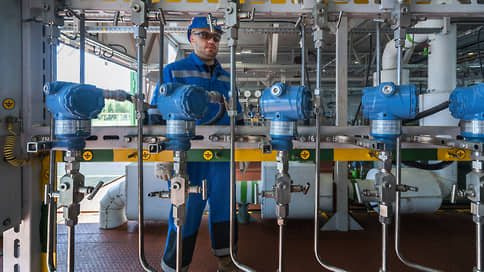Damper payments to oil companies will be reduced by 50 billion rubles from autumn.
[ad_1]

The government has agreed to reduce damper payments to oil companies from September 1, as a result of which they will be reduced by 50 billion rubles. per month. According to Kommersant’s interlocutors, this no longer causes resistance from the industry, but the discussion of the tax bill is still ongoing. The key disagreements are related to the plans of the Ministry of Finance to reduce the maximum discount for Urals to Brent for tax purposes to $20 per barrel. Initially, the Ministry of Finance planned to reduce damper payments in July, but the oil companies managed to get a reprieve, since adjusting the mechanism during the period of seasonal growth in fuel demand could accelerate price increases.
The government has so far been able to agree on only one key element of a future increase in the tax burden on the oil industry, which was originally supposed to take effect from July.
According to Kommersant’s interlocutors, at a meeting with the participation of the Ministry of Finance and oil companies led by Russian Deputy Prime Minister Alexander Novak, which took place on June 2, it was reported that the adjusted – halved – damper will work from September 1.
In May, damper payments to oil companies amounted to more than 100 billion rubles. According to several interlocutors of Kommersant in oil companies, the issue of the damper during the meeting was raised by a representative of the Ministry of Finance, there were no objections from the companies. So far, it is assumed that the trimmed damper will remain in this form for a year, after which it will be restored. The Ministry of Finance did not answer “Kommersant”.
By adjusting the damper, the budget can save 50 billion rubles. per month. Wherein, as Kommersant reported on May 2, about 20 billion rubles. oil companies can be compensated by reducing the MET (through the KABDT coefficient in the MET formula). As a result, the net effect for the budget will amount to 30 billion rubles. per month, as the head of the Ministry of Finance Anton Siluanov said in May.
2.16 trillion rubles
oilmen received a fuel damper in 2022.
Initially, the Ministry of Finance planned, in conditions of significant shortfall in oil and gas revenues to raise taxes on the industry from July, but the project was not approved by the government, otherwise it did not have time to submit it to the State Duma. According to Kommersant’s interlocutors, during a period of high seasonal demand, significant changes in the damper could push wholesale fuel prices up, and the postponement to autumn will prevent this. The authorities of the Russian Federation are most of all afraid that the increase in wholesale fuel prices will force gas station operators to raise fuel prices.
The Ministry of Energy promises that the increase in prices at gas stations will not exceed the inflation rate. But already now the price of fuel that has risen in the wholesale segment is forcing oil companies and independent filling station operators to raise prices.
The discussion of other parameters of tax changes, which will be formalized in one bill, continues.
The key controversial point is the reduction of the maximum discount for Urals to Brent for calculating oil taxes.
The Ministry of Finance planned to fix in the project a discount to Brent at $20 per barrel from September after it was cut from $34 to $25 in July from April. At the same time, already in May, the real discount, according to the Ministry of Finance, was $22 per barrel. The Ministry of Energy and the industry believe that the possibility of further reductions is questionable and oppose such an approach. Also, the authorities are still discussing the parameters of using the price indicator of the SPIMEX exchange to calculate taxes on the industry.
In December, Western countries imposed a price ceiling on Russian oil of $60 per barrel, barring their companies from participating in freight and insurance operations for Russian cargo if it is sold above the ceiling. Considering the current price of Brent, the average selling price of Urals at the current discount is within the ceiling. If the discount is reduced from $25 to $20 and the price of Brent rises, this could cause problems with shipments.
Last week, Deputy Finance Minister Alexei Sazanov expressed confidence that the tax project for the oil sector would be submitted to the State Duma in June. “Now it is being discussed, in addition to this tool (damper.— “b”), additional. Therefore, this discussion is still underway in the government, and the entire set of changes will be combined into one bill and submitted to the State Duma, ”the official noted.
According to Kommersant’s interlocutors, the Ministry of Finance does not plan to limit itself to these adjustments and intends to reduce tax incentives for the oil industry in 2024.
[ad_2]
Source link





